How to Start a Waste Management Business in 2025
Learn how to start a trash business in 2025. Get tips on choosing your niche, permits, funding, and marketing for a profitable, sustainable venture.
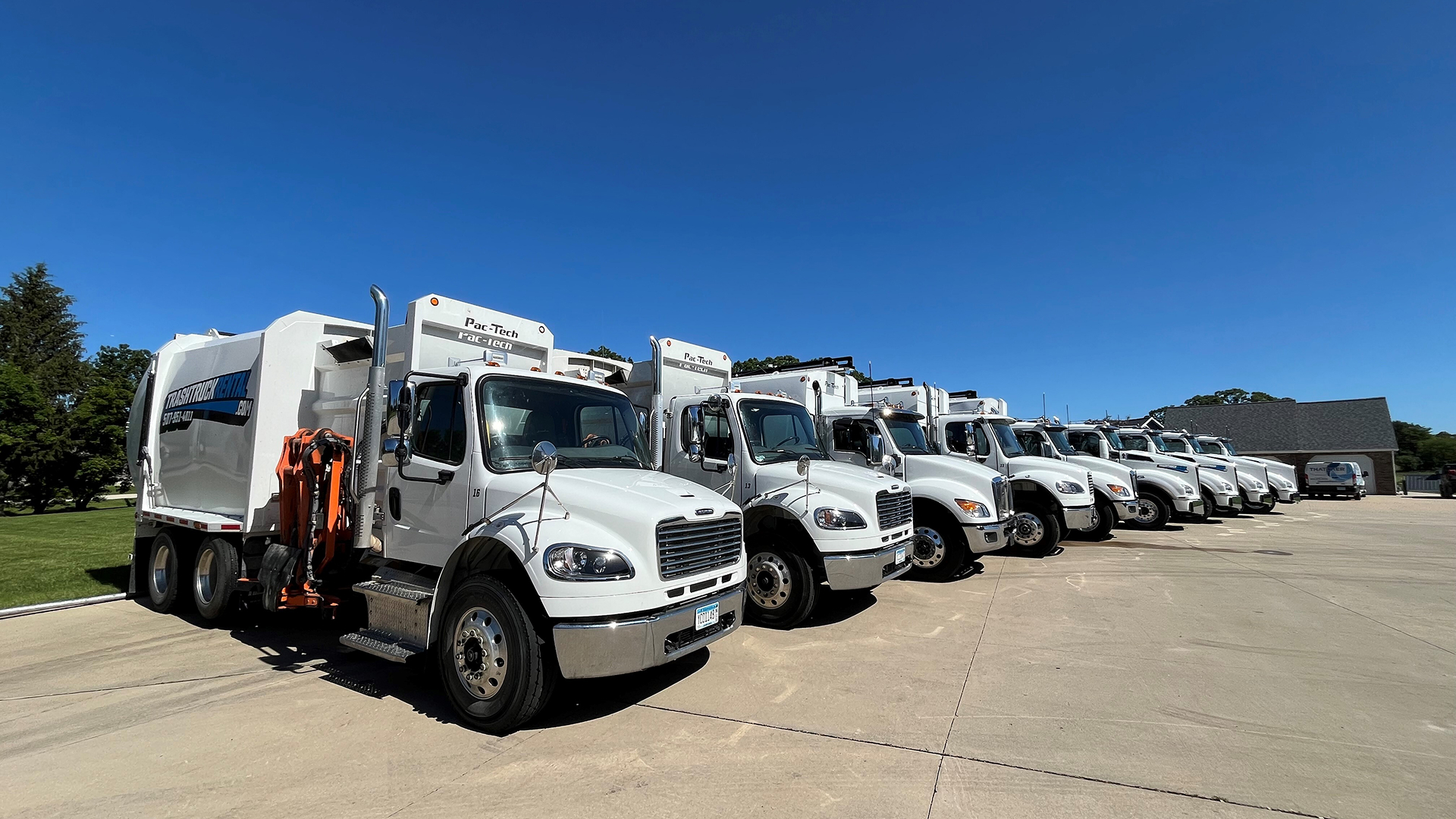
Learn how to start a trash business in 2025. Get tips on choosing your niche, permits, funding, and marketing for a profitable, sustainable venture.

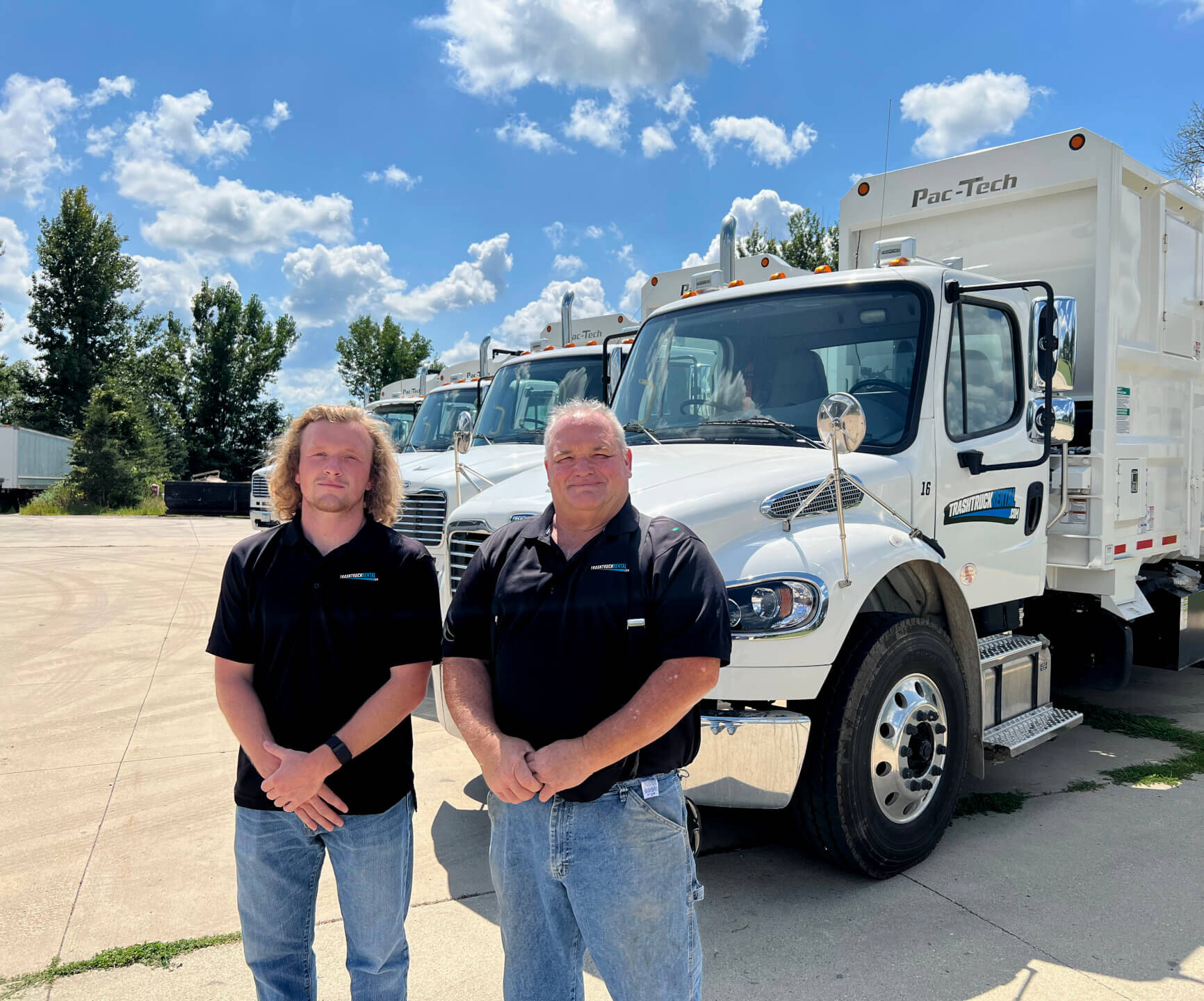
As the world generates more waste and the population grows, the need for intelligent, sustainable waste management solutions becomes increasingly urgent. If you’re thinking about a business that can earn income while making a real impact, starting a waste management venture in 2025 could be a strong choice.
Waste management businesses can help reduce food waste by offering composting services and diverting uneaten food from landfills, turning it into valuable resources. It might not seem glamorous at first, but the work is essential, especially in the U.S., where 30 to 40 per cent of the food supply goes uneaten, wasting valuable resources and harming the environment. With new green technologies and rising awareness about sustainability, there’s a real need and opportunity for fresh ideas in this space.
Starting any business comes with questions, and learning how to start a trash business is no exception. But imagine running a company that helps keep neighborhoods clean, protects nature, and supports everyday life. This blog will guide you on how to start a waste management business, its benefits, challenges, and ways to overcome them.
A waste management business handles more than just trash pickup. It’s about collecting, transporting, sorting, recycling, and disposing of various types of waste safely and responsibly. You’ll see it in action from neighborhood recycling to handling waste from big factories. It utilizes specialized tools and adheres to strict guidelines to safeguard individuals and the environment. When done correctly, waste management transforms harmful trash into something useful, helping to keep communities clean and healthy.
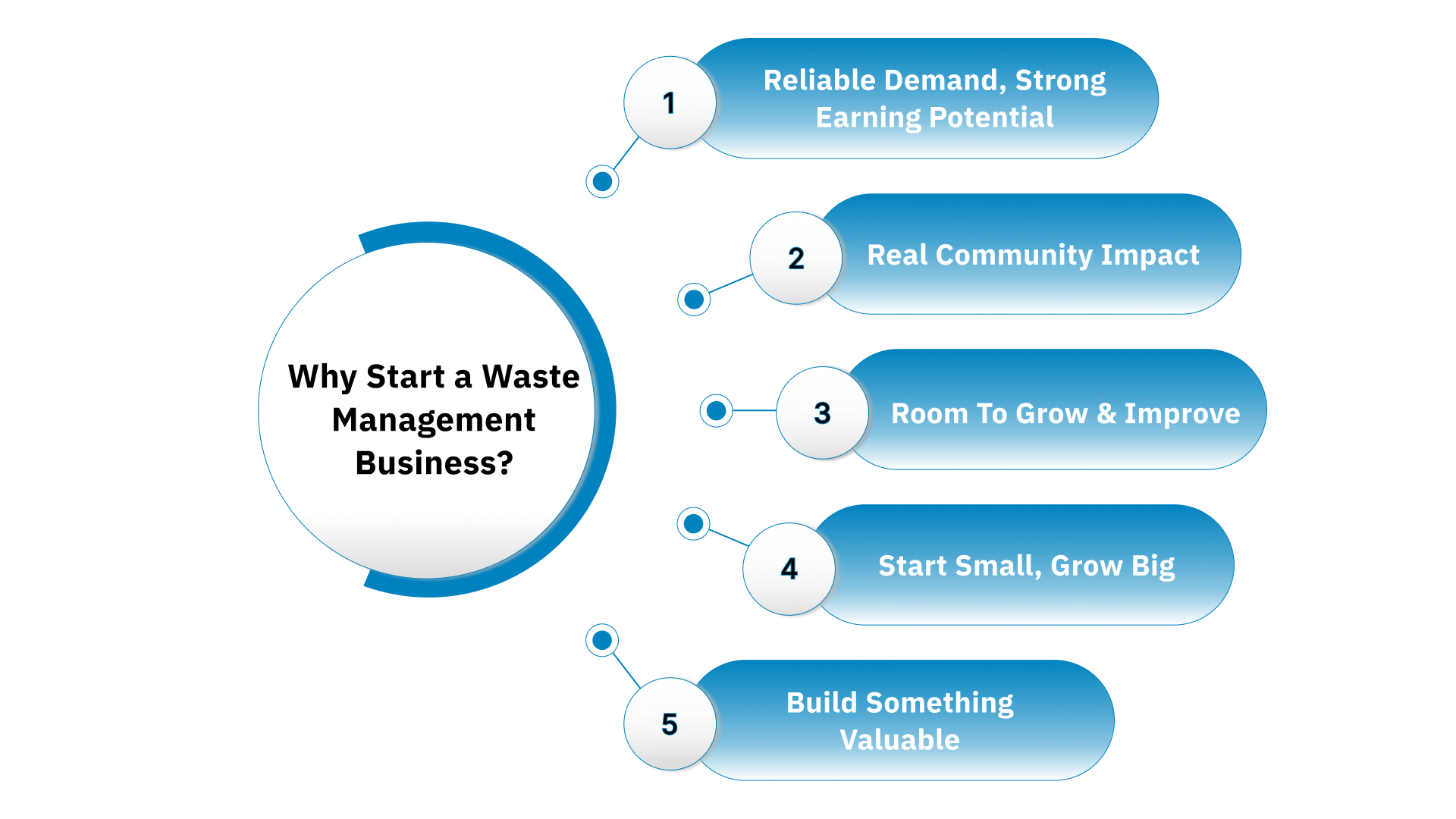
Starting a waste management company in 2025 can be a smart move. It’s more than just picking up trash; it offers real, lasting benefits.
1. Reliable Demand with Strong Earning Potential: Waste is a constant, generated by households and businesses, regardless of the economy. This steady need, combined with growing interest in eco-friendly services such as recycling and composting, creates multiple income streams and long-term profitability.
2. Real Community Impact: You help make neighborhoods cleaner, reduce landfill waste, and support recycling. It’s a way to earn while doing something good for the planet.
3. Room to Grow and Improve: New technologies, such as route-tracking tools or AI-based sorting, make it easier to work smarter. You can expand into new areas or services as you go.
4. Start Small, Grow Big: You don’t need a huge setup right away. Start with basic equipment and add more as your business grows.
5. Build Something Valuable: You’re investing in real things like trucks, tools, and systems. Over time, these assets can grow in value and support future business plans.
Understanding these benefits helps you recognize why this industry has long-term potential and what the current market landscape entails.
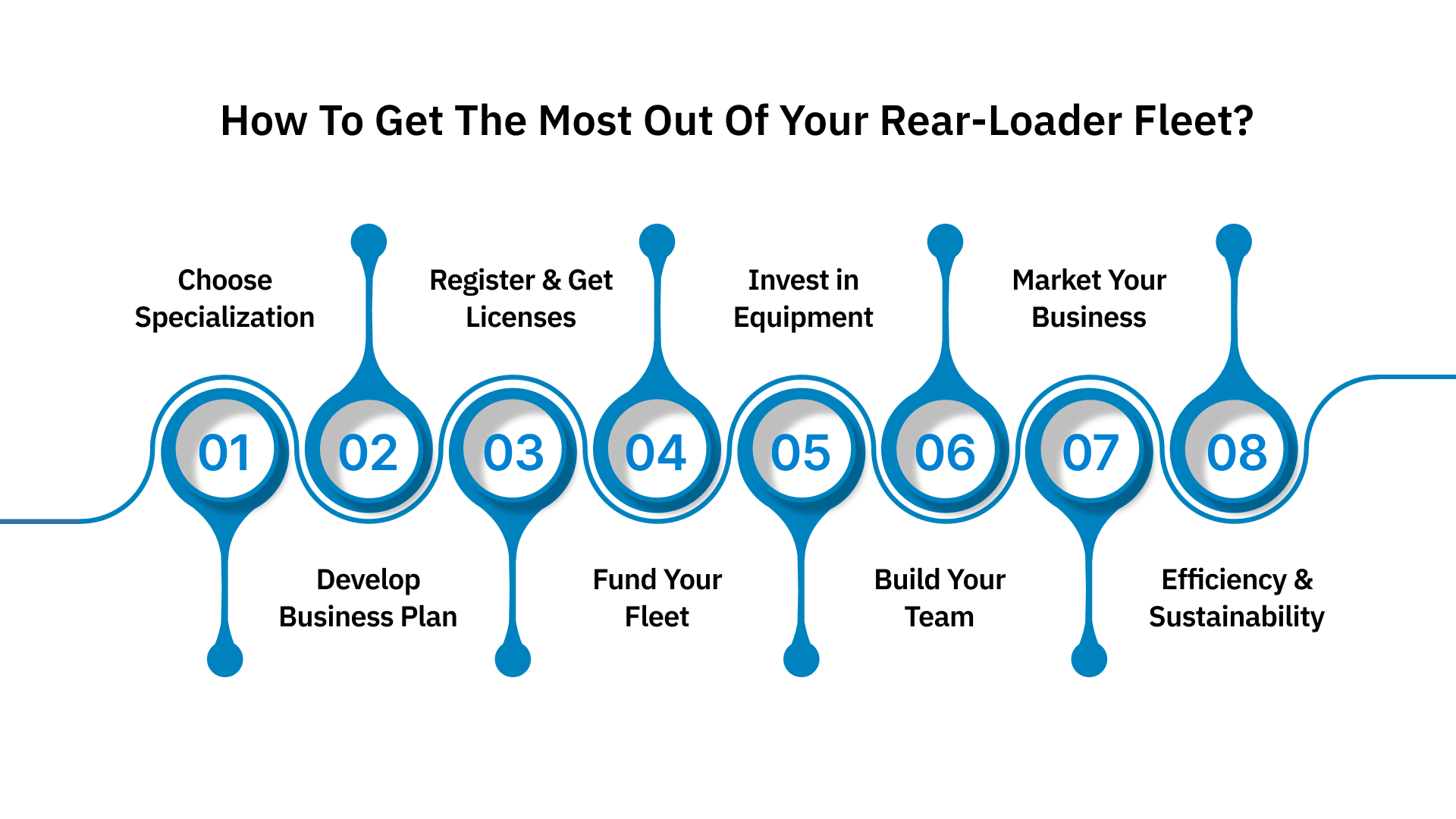
America generates a staggering amount of waste daily. According to the Environmental Protection Agency (EPA), the average American generates approximately 811 kg (all figures in kilograms per inhabitant) of waste, as reported by countries in the Global Waste Index 2022. This constant flow creates a consistent demand for waste management services, making it a robust and recession-resistant industry.
In 2025, with a heightened focus on sustainability, recycling, and waste-to-energy solutions, the industry is ripe for innovative approaches and new players. This isn't just about landfills anymore; it's about resource recovery, environmental stewardship, and creating a circular economy. So, where do you begin to tap into this vital sector?
When you hear “trash business,” you might think of regular household garbage, but the waste industry includes much more. To build a strong and lasting business, it helps to focus on a specific area. Begin by identifying the types of waste commonly found in your region and determining where services are lacking. This can guide you in choosing the right niche, planning your services, and using the right tools, helping you work smarter from the beginning.
To get you started, here’s a quick look at common waste types in the U.S. and the services usually associated to them:
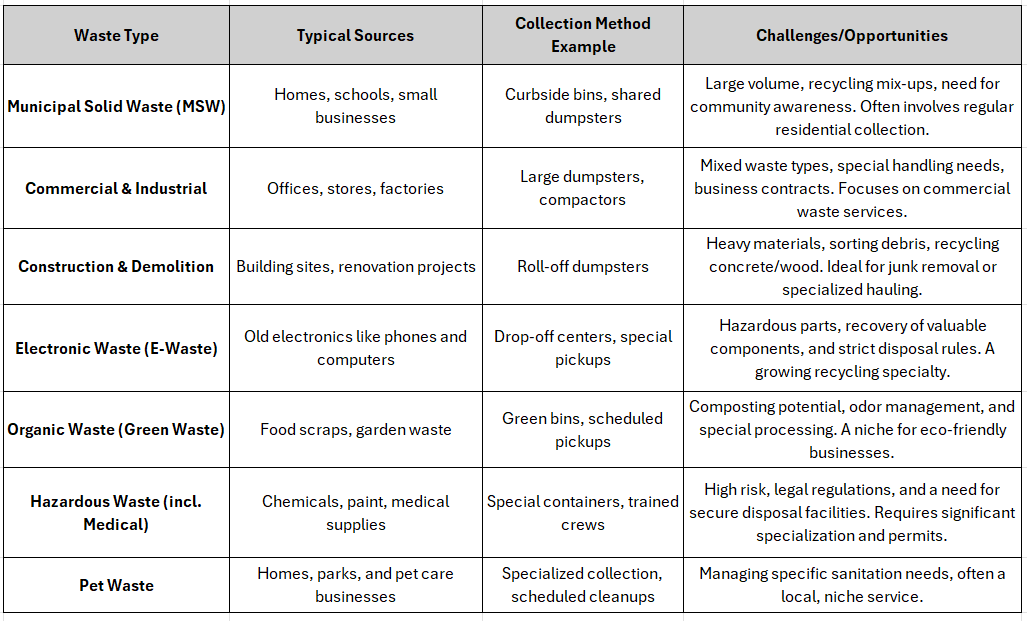
Once you’ve refined your ideal specialization, the next crucial step is mapping out your journey to success.
Every successful venture starts with a solid blueprint. Your comprehensive business plan isn’t just a formality; it’s your roadmap to success, a living document that guides your decisions. It should outline:
You can check out free templates and tools from the U.S. Small Business Administration (SBA) to help you get started. Once your plan is ready, you’ll be one step closer to launching your business.
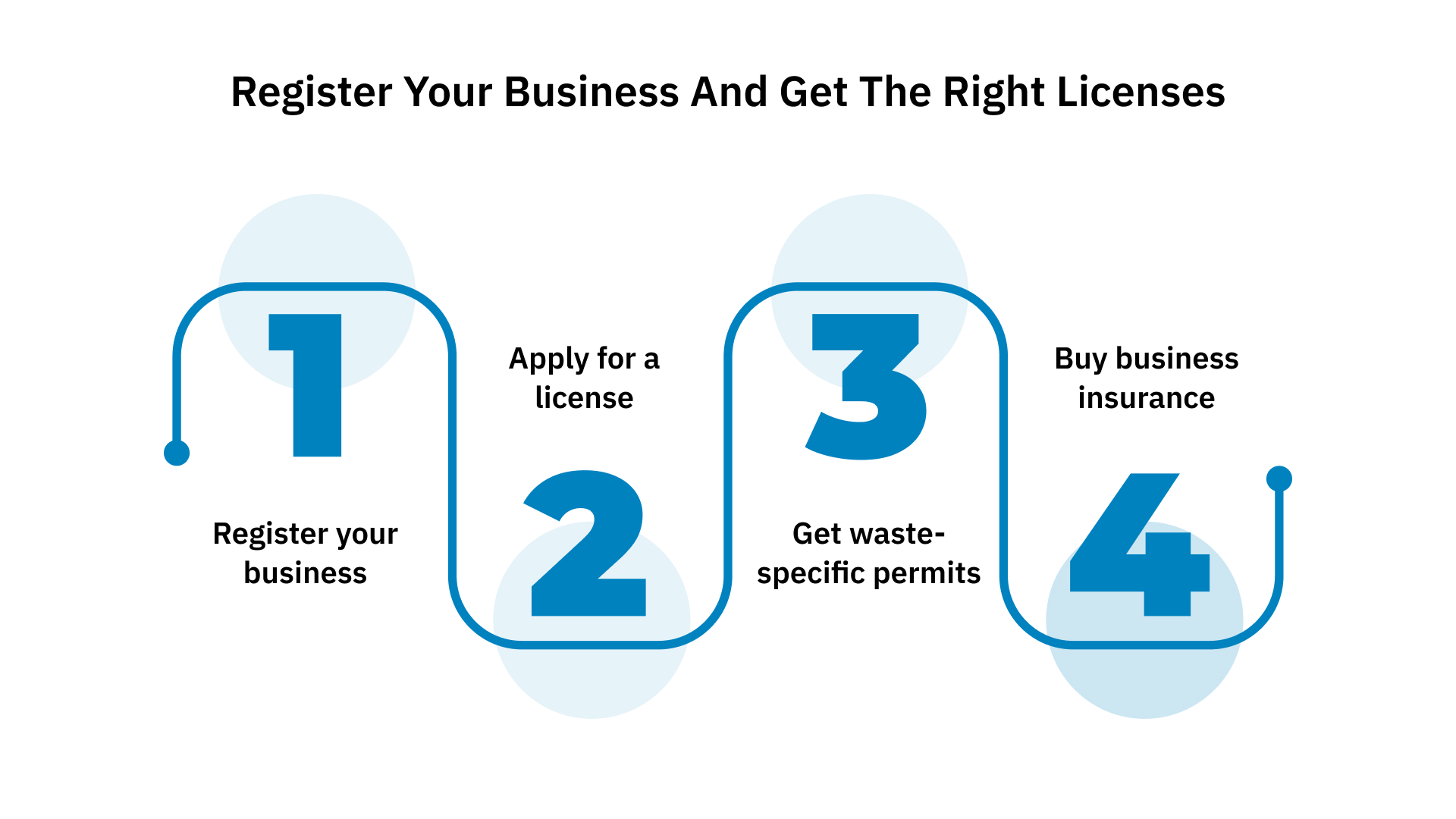
Starting a waste management business requires compliance with regulations, including obtaining transportation permits, environmental compliance certificates, and waste-specific licenses tailored to the types of waste handled.
To get started, you’ll need to:
It’s advisable to consult with your local authorities or a legal expert to ensure you meet all the requirements. Missing a step could result in fines or even a shutdown. Once you're legally set, you can focus on acquiring the necessary equipment.
Also Read: Do You Need a CDL to Drive a Garbage Truck?
Starting a waste management business can be capital-intensive, primarily when investing in new trucks and specialized equipment; however, renting or leasing can ease the financial burden. Startup costs may range from a few thousand dollars for a basic junk removal setup with a pickup truck to millions for a full-scale commercial or municipal operation.
Here are smart ways to fund your business:
Securing the necessary funds brings you closer to the tangible assets required to operate.
What you buy depends on your niche and service size, and the equipment directly affects your work quality and speed.
Research vendors, compare costs, and train your team to use everything safely and correctly. Proper equipment training is key to safety and efficiency. If you're not ready to invest in new trucks, platforms like Trash Truck Rental offer flexible options to keep your operations running smoothly.
Your employees are the backbone of your business, especially in a service-oriented industry like waste management. Look for individuals who possess the following qualities:
Start with a small team and expand as your workload increases, fostering a strong company culture centered on safety and service. Once you have a capable team and equipment, the next step is to let your community know you’re open for business.
Even the most efficient waste management business needs customers to thrive. Marketing your waste management business effectively is key to building your client base.
Highlight your unique selling propositions, whether it’s specialized services, eco-friendly practices, competitive pricing, or exceptional customer service. As you grow your client base, maintaining high standards of operation and embracing innovation will be crucial.
Waste management today is about more than just collecting trash. To grow and stay relevant, you need to focus on doing things smarter and greener.
Having the right equipment is essential for smooth operations. Still, you’ll face some common challenges in waste management that need smart solutions.
Also Read: How the Back of a Garbage Truck Works: Key Functions

Waste management presents significant opportunities, but it also poses substantial challenges. Here’s what you might face and how to tackle each one:
Now that you know the key challenges in waste management, let’s explore how you can tackle them head-on. Here are some practical solutions Trash Truck Rental offers to help you stay efficient, compliant, and cost-effective.
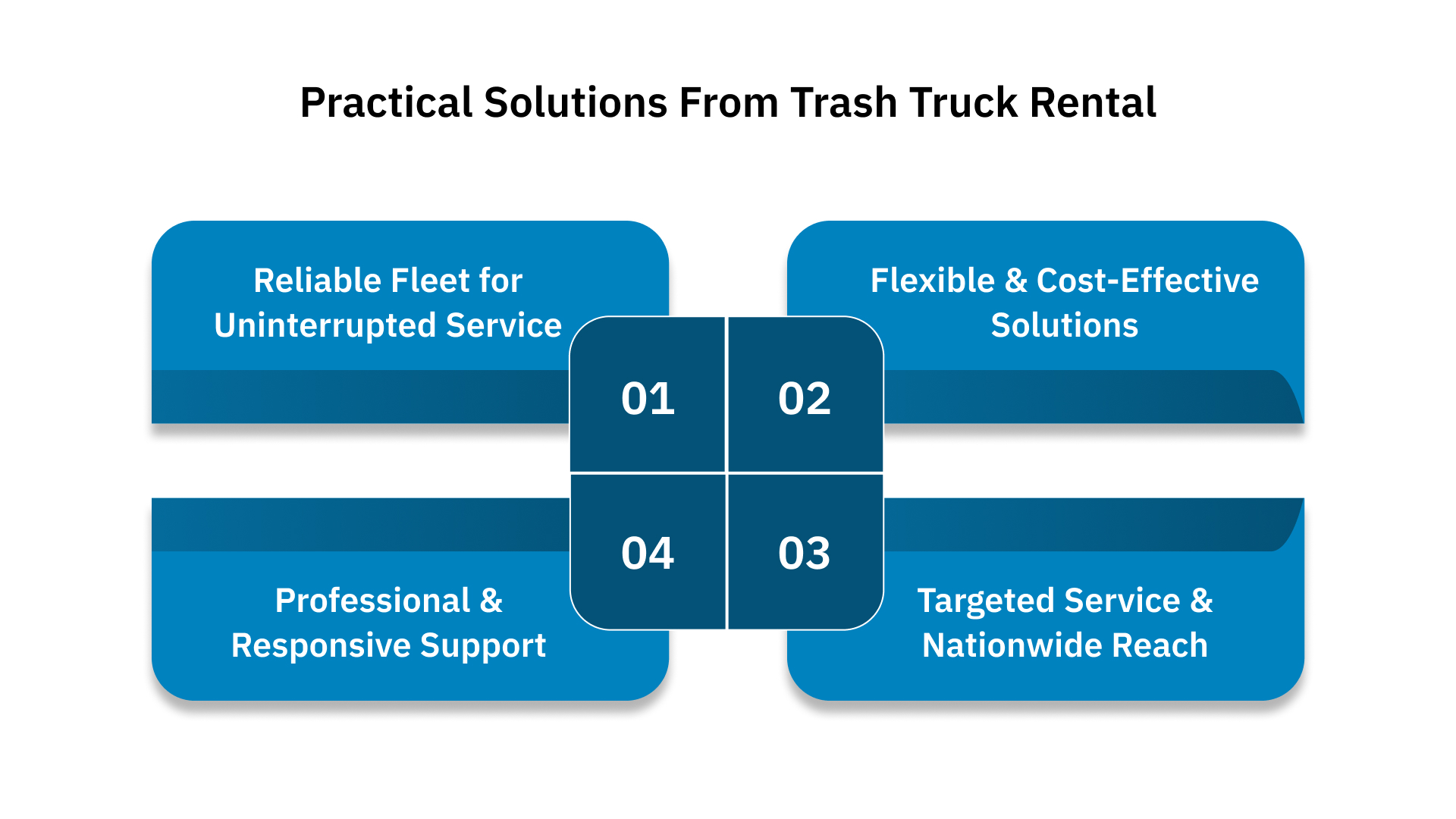
Implementing advanced customer engagement strategies and upholding high operational standards requires a fleet that’s as reliable and efficient as your communication. Trash Truck Rental understands the pressures on fleet managers, operations directors, CEOs, and COOs to maintain effortless service while optimizing resources.
We commit to equipping you with dependable, well-maintained garbage trucks for rent or sale. Our fleet ensures your operations depend on it, and the following reasons make us a trustworthy option.
Different jobs require different trucks, and our fleet is designed to meet the needs of real-world waste collection.
All trucks are lightly used, fleet-maintained, and chosen for their performance and reliability. Thanks to our meticulous maintenance standards, you can count on consistent, uninterrupted service even during peak demand or equipment downtime.
We offer both rental and purchase options to suit your specific operational and financial needs. Our solutions are designed to be highly cost-effective, enabling you to maximize your budget. With over 20 years of industry experience, affordability remains at the heart of what we do, offering practical and budget-friendly options without compromising on quality. Whether you're expanding routes, managing unexpected breakdowns, or testing new service areas, you can count on us for reliable equipment without the burden of long-term capital commitments.
Our team is knowledgeable, solution-oriented, and always prioritizes your needs. We uphold high standards in all operations and communications to foster transparency, excellence, and trust throughout our partnership. Expect clear, proactive communication and responsive support throughout our partnership, designed to prioritize your needs.
While our reliable vehicles are primarily available for rental in the Midwest, specifically in Minnesota, Wisconsin, and Iowa, we also offer nationwide sales across all U.S. states.
We help you focus on building stronger relationships with your customers and communities by providing the reliable, efficient, and cost-effective equipment you need.
Starting a waste management business in 2025 is your opportunity to build something meaningful while supporting cleaner, healthier communities. It requires planning, compliance with local regulations, and a focus on both efficiency and sustainability. While startup costs and permits can be challenging, the long-term benefits make the effort worthwhile.
At Trash Truck Rental, we keep things simple and reliable. Our trucks are well-maintained, our terms are clear, and we’re here to provide support when you need it. We help you manage costs, reduce downtime, and keep your operations running smoothly.
Looking for a truck that fits your schedule and budget? Explore our flexible lease & purchase options. Not sure where to start? Reach out at sales@trashtruckrental.com or request a quote, and we’ll guide you through the best options for your business. We’re here to make your fleet decisions easier and more efficient. Contact us today.
The initial investment for a waste management business can vary significantly based on your chosen niche. A basic junk removal service might start with a few thousand dollars (for a truck and essential tools). In contrast, a full-scale residential or commercial collection operation, which requires specialized trucks and equipment, could run into hundreds of thousands or even millions of dollars.
Key permits often include transportation permits for hauling waste, agreements for access to approved disposal sites (such as landfills and recycling centers), and compliance documents with federal (EPA) and state environmental regulations. If you handle specialized waste, such as hazardous or medical waste, you'll need additional, stringent certifications. It's crucial to consult local, state, and federal authorities early in your planning.
Demand is steady, and profits grow with smart operations, efficient routes, and sustainable services, such as recycling or composting.
Research local needs. Look at demand, competition, and your budget. Options include household pickup, commercial waste, recycling, and specialty services such as e-waste or pet waste.
No. You can start with a pickup for small jobs or lease trucks to lower costs. Trash Truck Rental offers a range of rental options to help you get started quickly.
Ready to Upgrade Your Process Operations?